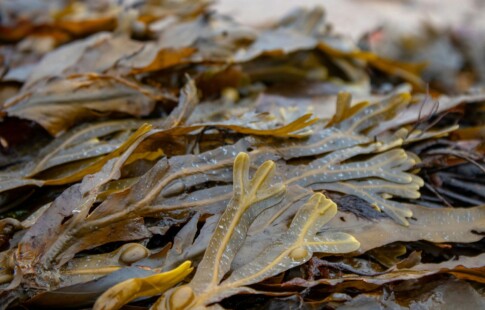
The Most Sustainable Diet for the Planet? Here’s What to Know About Flexitarian Diets
We are reader-supported. When you buy through links on our site, we may earn affiliate commission.
Have you ever wondered what the most sustainable diet for the planet would look like?
An influx of environmental documentaries on streaming sites has society considering solutions. Utilizing green forms of transportation and smart thermostats are efficient ways to shrink your carbon footprint. But, as it turns out, limiting your meat consumption is the most impactful action to take when it comes to reducing methane emissions.
Adopting a vegan diet may seem challenging for many people. It also may be impossible for folks with certain diseases or health issues. For these reasons, environmental scientists developed a new diet to support humanity’s well-being while significantly limiting ecological degradation.
Flexitarianism is the most sustainable diet for the planet. It challenges issues of greenhouse gas emissions and water waste. A flexitarian diet allows one to put the environment’s health before dietary restrictions to support themselves and the planet.
Why Limit Meat Consumption?
The meat and dairy industry contributes to 60% of agricultural greenhouse gas emissions. This is due to the production of methane from cattle. Methane is an air pollutant that traps the sun’s energy in the atmosphere and warms the surrounding environment. Increased greenhouse gas levels in the environment have led to a 2°F global temperature rise, sparking degradation.
When we limit our consumption of meat and dairy, we reduce our contribution to greenhouse gas emissions. The flexitarian diet is an efficient way to do so. You can reduce your emissions by 52% when you cut back on your consumption of animal products.
The Case for a Flexitarian Diet
The word “flexitarian” is a combination of “flexible” and “vegetarian.” This diet is mostly plant-based, with a few exceptions. Flexitarians consume small amounts of animal products to support environmentally ethical choices, meet their nutritional needs, and support their health and well-being.
Occasionally eating animal products can be more sustainable than a fully vegan diet. Many meat substitutes or nourishment additions to the plant-based diet cause environmental degradation.
Mushrooms
Portobello, button, and chestnut mushrooms are common meat substitutes in vegan diets. But they are more similar to meat in terms of environmental harm than you would think. These energy-intensive crops emit high amounts of carbon dioxide in their production.
Mushrooms are grown in temperature-controlled rooms set to 144°F consistently. This contributes to the majority of greenhouse gas emissions in the growing process. But the fungus alone produces harmful air pollutants.
The common mushrooms consumed in vegan diets produce 3 kilograms of carbon dioxide on average. These emissions combined with those released through temperature control make this meat substitute an unsustainable plant-based option.
Almonds and Avocados
Similar to mushrooms, almonds and avocados cause more harm than good to the environment. Almond milk is a popular vegan milk substitute found at corporate cafes and grocery stores. Unfortunately, this is a water-intensive crop.
It takes 1.1 gallons of water to grow one almond. The depletion of this natural resource makes almond milk a questionable dietary option from an environmental conservation standpoint, even if it does have some health benefits.
Another water-intensive crop consumed in high quantities by the vegan community is avocados.
One mature avocado tree utilizes 46 gallons of water a day in the warmer months. And their environmental harm does not stop with water depletion. Most countries outsource their avocados due to their specific growth climate. Avocados are shipped worldwide from Central America, burning immense amounts of fossil fuels in the process.
Those who engage in a flexitarian diet recognize the harms that some plant-based substitutes pose to the environment. They use this information to mindfully decide whether animal products would be a more sustainable option. Putting the environmental option before a dietary restriction allows for environmentally conscious consumption.
Health Effects
Many adopt a vegan diet to lower their risk for certain diseases and illnesses. There are also adverse health effects of this diet, making the flexitarian diet the healthiest option for the planet and humanity.
Reducing your consumption of animal products can lower your risk for heart disease, cancer, and diabetes. It’s also correlated with a 3.6-year-longer lifespan. Many vegans also maintain a lower body weight, which reduces their risk for obesity and its associated health effects.
Strictly plant-based dieters have lower levels of the necessary vitamins, minerals, and caloric intake. A lack of omega-3 fatty acids and an increase in omega-6 consumption heightens one’s risk for depression. Fatigue, illness, and depression all reduce your ability to aid in environmental conservation.
To lead a fully sustainable life, you must take in the necessary energy and experience satisfactory well-being to shrink your carbon footprint physically. Riding your bike to work, rather than burning fossil fuels through driving a car, is only possible if you are healthy enough to engage in that exercise.
If you are malnourished, you are also unable to warm your body appropriately. So, you will need to keep your home at a warmer temperature than a healthy individual. Increasing the temperature in your home increases your greenhouse gas emissions, polluting the atmosphere.
Find Your Environmentally Sustainable Diet
Rather than compromising your health or purchasing environmentally degrading foods, you can become a sustainable consumer by adopting a flexitarian diet. Those who engage in a flexitarian diet put the environment first in their dietary decisions. When faced with consuming an environmentally-harmful plant-based food or a less degrading animal product, they would mindfully choose the animal product.
For example, at a café that only offers almond milk or goat’s milk from a local and environmentally ethical farm, they would choose animal milk. They would not feel forced to support water degradation because of a diet label. Instead, they would put the environment first.
Consuming animal products in moderation when it supports the environment helps maintain environmental conservation. As it turns out, this makes flexitarianism the most sustainable diet for the planet.
Share on
Like what you read? Join other Environment.co readers!
Get the latest updates on our planet by subscribing to the Environment.co newsletter!
About the author

Jane Marsh
Starting from an early age, Jane Marsh loved all animals and became a budding environmentalist. Now, Jane works as the Editor-in-Chief of Environment.co where she covers topics related to climate policy, renewable energy, the food industry, and more.





